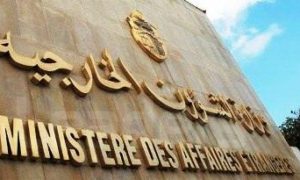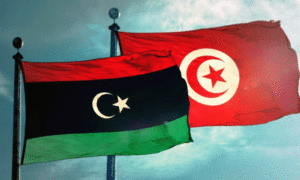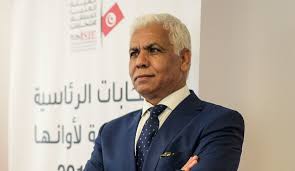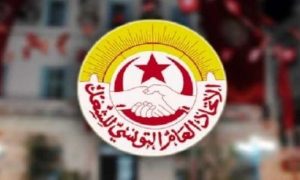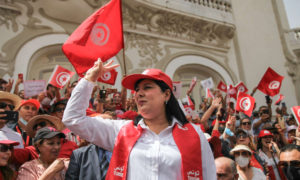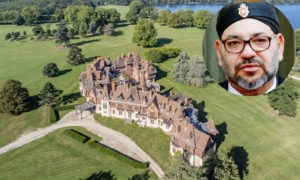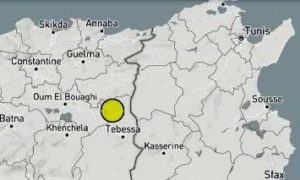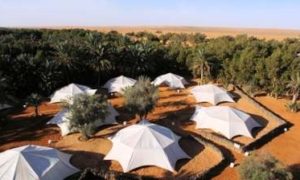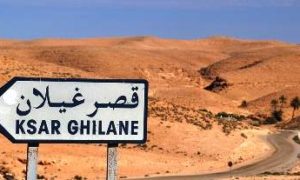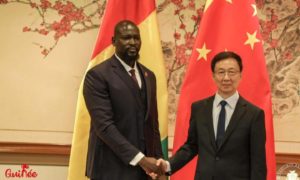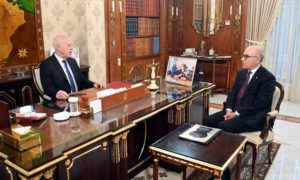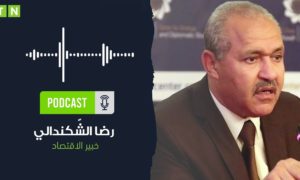Constitutions, Hence, are contracts that need to be respected unless there is a necessity to develop or modify them, and change normally does not befall except in the wake of a significant political crisis.
Today, ten years after the revolution, the nation is undergoing an unparalleled political crisis, which everyone agrees to describe: governmental instability, friction between the several state institutions, and the fragmentation of the parliamentary scene, to the point of paralysis.
The most striking signs of the Tunisian crisis, then, are two predicaments: governmental instability and dispute between state institutions. If people agree on the description of its symptoms, they vary in diagnosing its causes: some of them attribute it to the electoral system and some of them view it as residing in the composition of the political system itself.
The electoral system has an influence on the political system, although electoral systems are touched by their role, and they normally exhibit the state of political accord or division in the society. Tunisia adopted the proportional system in the elections, which is the course that societies have followed since the end of World War II, due to the fact that it produces pluralism and fairness in parliamentary representation. Nevertheless, one of the drawbacks of this system, in general, is that it does not permit the emergence of a majority power capable of governing alone, pushing it to establish party alliances. Its stability depends on the degree of harmony or division of the political class (eg Germany, Spain and Italy).
Tunisia can execute whatever amendments it desires to the current electoral system (setting the threshold) or even adding a dose of voting to the individual lists, as is the case in Germany, Japan and Italy, however, these amendments will not allow us to discuss two main factors (the electoral qualm and the fragmentation of the party map). , furthermore, they are the two agents that stand behind the disturbance of parliamentary work and government instability, so these amendments will not be implemented to the issue of the dispute of powers between the Presidency of the Republic and the Presidency of the Government.
On closer examination, it becomes obvious that the main problem in the political system that has been established since 2011 (the small constitution) and approved in the 2014 constitution lies in double-dealing at the head of the executive authority, between the President of the Republic and the Prime Minister, and the fulfilment of the executive powers is in the hands of the latter and reducing him to the authority of the parties.
This choice had two outcomes: a conflict and a dissonance to the point of paralysis between the two heads of the executive authority (Marzouki vs Jebali, Al-Arrayedh then Jumaa, and after him the conflict between Beji Caid Essebsi and Chahed, and today between Saied and Mechichi). As for the second result, it was seen in the founding of the party system which unlocked state ownership and governmental instability.
If this is the case, then the answer rests in returning unity to the executive authority under one of the two systems: parliamentary or presidential.
Tunisia does not possess the requirements of a parliamentary system, as one of its stipulations is the establishment of a party system rooted in society, bearing visions and projects which citizens can line up around. This parliamentary system was produced in the shadow of bipartisanship (Britain) or polarity (France) backed by the voting system on individual lists. (In one or two sessions) Experience has demonstrated the unfairness of this system in terms of pluralism and parliamentary representation, and it started showing symptoms of exhaustion in its birthplace, Britain, since the commencement of the current millennium. As for the U.S In it has conserved its vitality thanks to the primaries that grant priority to the voter at the cost of the central party bodies.
On the other hand, the presidential system, which has seen the light in the United States 150 years ago, is marked by the establishment of an authentic separation between the legislative and executive powers: the legislature legislates and watches, and the executive authority receives its legitimacy from universal suffrage, in which the creation of the government goes back to the President of the Republic with monitoring from the House of Representatives, and so on. The separation between the two powers is complete although is based on balance and the exchange of control between them.
The formation of the government by the president freed the state of the tyranny of parties. Parties do not create the government in the presidential system, however, they monitor it and specializes in the function of legislation. They have sufficient time to grow into modern parties embedded in society, bearing visions, projects and programs fitted of building society, which is their principal and original functions. The parties are at the service of the state, and the state is not a place for a battle of influence between them
The 2014 constitution is not bad, as it incorporated articles that were not introduced in the 1959 constitution: the list of rights and freedoms, the section on the judiciary, the constitutional court, local government, and independent constitutional bodies… But the relation between the legislative and executive authorities embodied the root of the issue of disease in the political system established by this constitution, based on only partisan calculations.
Then, the issue is confined to how this constitutional amendment is conducted and who implements it. The origin is that the constitution is revised in accordance with the rules included in it (two-thirds of the members of Parliament), but this condition is out of reach in light of the prevailing composition of parliament and the constitution has not built a different mechanism that provides the Tunisian people with the right to express their opinion in times of crises through a referendum, although the constitution admitted in The third chapter that the people practice their sovereignty through their representatives or by referendum.
And here lies the value of the three words that emerged in Mr Taboubi’s interview, notwithstanding whether they are attributed to the President of the Republic or not, as he has not declared them until today. In view of the exacerbation of the crisis and the calcification of the current constitutional system, all that remains is to resort to a referendum for the people to decide between maintaining the current political system or substituting it with a presidential system, followed directly by early presidential and legislative elections.
These recommendations can set the basis for a way out of the crisis, though the right to referendum, which was seized by the 2014 constitution, can be incorporated in an amendment approved by a broad and serious national dialogue, or damaged by a massive citizen movement from the parliament. I had previously offered in 2011 to just revise the 1959 Constitution, and this proposal ignited a storm that did not sit still. And in circumstances that are still vague to me, “it was decided to move towards electing a council.”
I am fully aware that my defence of the Constitutional Court can serve Ennahda in its conflict with Saied, but I believe that it is a bound interest and ephemeral (with the composition of the parliament and the division of the three powers), while the Constitutional Court continues to be the needle of the balance in our modern constitutional system and a lighthouse for future generations, a generation after generation.
I am likewise conscious that my (constant ) defence of changing the political system today can profit Kais Saied in his conflict against the Ennahda movement, but I am sure that Saied is evanescent and that the political system remains alive and does not vanish, as long as it reacts to the needs of something called Tunisia.
I would like to state, by the way, that “populism” is a political expression of a deep-rooted social and cultural crisis that does not cease unless its causes are omitted, and that dictatorship and absolute autocracy can adjust to all sorts of political systems. (Hitler and Mussolini), and ه concluded with what Taboubi announced during his dialogue: “He who is afraid of picking his people, let him stay in his home.”




